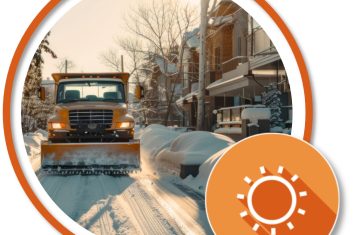I have often said that one of my most important jobs as a manager is to protect my associations. That includes my boards, the buildings, and the residents. I can’t police my properties 24/7, but I can be mindful of possible hazards, and eliminate as many as possible. An insurance inspection at one of my associations revealed another hazard of which I was totally unaware, a hazard that, if left unattended, could result in tremendous loss to property and possibly life. Old electric panels.
Research and experience has revealed that electric panels and circuit breakers manufactured by Zinsco/Sylvania (as well as some other manufacturers) and installed in buildings constructed around 1960 are prone to several types of failures, including arcing and/or overheating, breakers failing to trip in response to an overcurrent condition (a fire and shock risk), and breakers failing to drop power even when they are switched off. These are often panels that are known as “split buss type panels” which do not have a main breaker, but rather all of the breakers need to be turned off to kill all of the power. Problems can occur especially on circuit breakers feeding circuits that have a steady heavy load on them (like heaters and hot water tanks) and on circuits that are often overloaded such as those that supply the kitchen or bathroom.
SIGNS OF TROUBLE – The following are indicative of a possible problem with an existing electrical panel:
- Flickering lights
- Smell of burning electrical devices such as plastic receptacles, receptacle covers, circuit breakers, or electrical wiring
- Loss of electric power in some, but not all, outlets
It’s important to note that Zinsco/Sylvania is a manufacturer of quality electrical equipment and virtually thousands of homes are equipped with their panels that are completely safe. If yours is an older community, however, you should make your residents aware of the warning signs of a possible electric panel problem, and encourage them to hire a licensed electrician who is familiar with Zinsco/Sylvania equipment and their possible hazards to inspect the panel and confirm if the equipment is unsafe, and replace it. Homeowners should never attempt to troubleshoot these kind of problems themselves, as they could be electrocuted or make the electrical equipment more unsafe by disturbing it.
ABOUT THE AUTHOR
Barbara Saxton, CMCA, AMS, PCAM is a Regional Condominium Manager with The Galman Group. Barbara is a long time member of CAI Kesytone’s Communications & Content Committee and formerly served as a member of the CAI NJ Chapter’s Communications Committee. Barbara is currently a member of CAI Keystone’s Board of Directors. She can be contacted via email at: bsaxton@galmangroup.com.

















